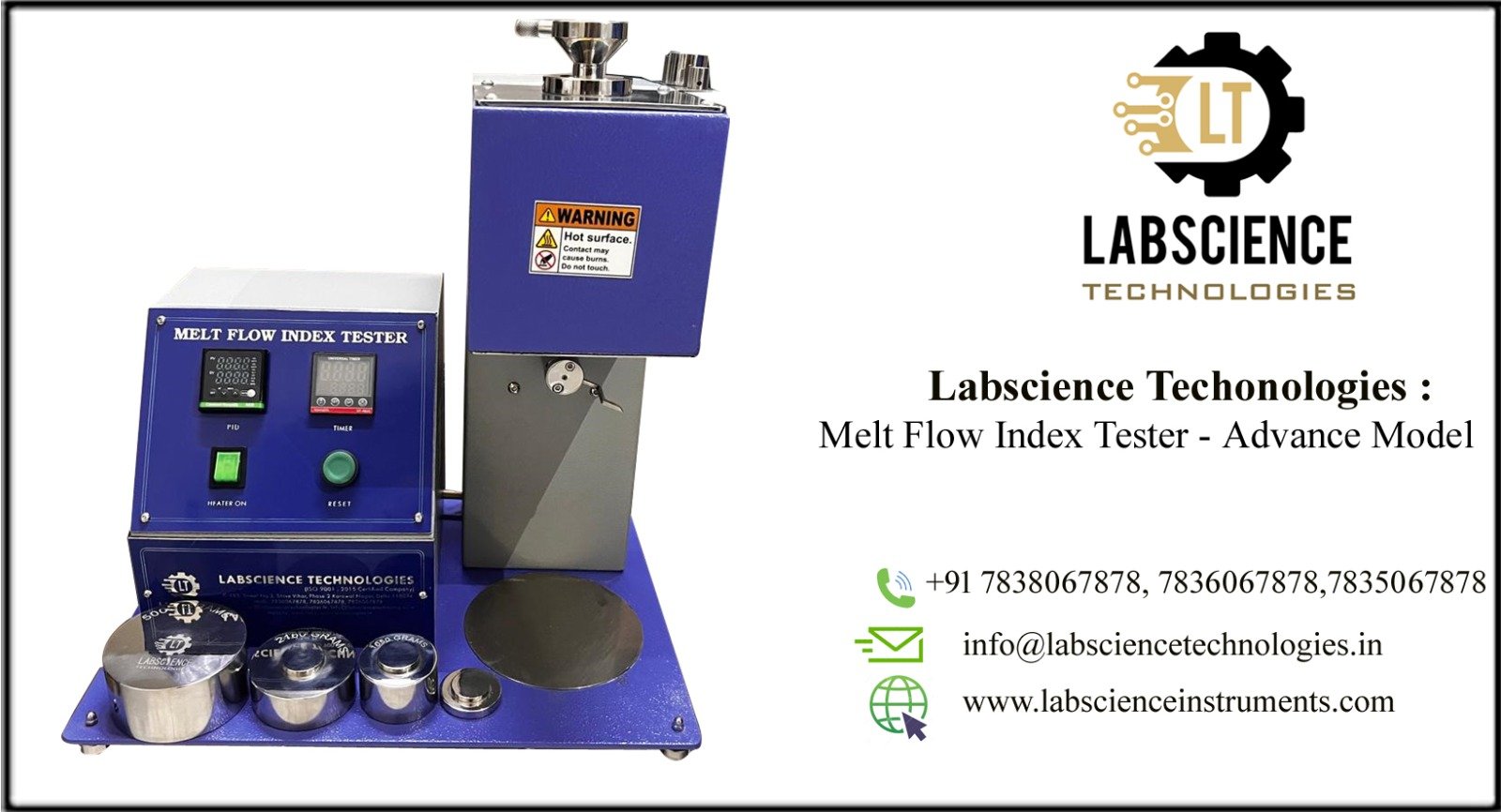Melt Flow Index tester
The MFI tester (Melt Flow Index tester) is a critical instrument in the polymer industry, designed to measure the flow properties of thermoplastic materials under specific conditions of temperature and pressure. It is widely used for quality control and material evaluation to ensure that plastic and polymer products meet the necessary standards for performance and durability. This article explores the key elements of MFI testing, the different types of testers, and their applications in various industries.
The Role of the MFI Tester
An MFI tester is used to determine the melt flow rate of thermoplastics, which provides insight into how easily a polymer can flow when melted. This is crucial for processes like injection molding and extrusion, where the material’s flow properties directly impact the quality of the final product. The melt flow index tester quantifies the amount of material that passes through a capillary die in a specific period, giving manufacturers an accurate measure of a material’s viscosity in molten form.
Testing is usually conducted using standardized methods like ASTM D1238 MFI testing or the ISO 1133 melt flow test. These globally recognized standards ensure that MFI results are reliable and comparable across different labs and industries. The ASTM D1238 standard specifies the test conditions, including temperature and pressure, making it essential for manufacturers worldwide. Similarly, the ISO 1133 melt flow test provides consistent guidelines for testing, particularly for materials exported to international markets.
Types of MFI Testers
There are two main types of MFI testing equipment: automatic MFI testers and manual melt flow index testers.
Automatic MFI Tester: This version automates many aspects of the testing process, including timing and material cutting. Automatic testers are ideal for high-throughput laboratories where speed and accuracy are crucial. They reduce operator error and provide more consistent results.
Manual Melt Flow Index Tester: This equipment allows for greater manual control over the testing process. It is well-suited for research labs and smaller-scale applications where flexibility is necessary, and human intervention can add value.
Both types of testers help measure the melt flow rate, ensuring that manufacturers can adjust their processing conditions according to the material’s properties. The plastic MFI tester is commonly used to assess thermoplastics like polyethylene, polypropylene, and ABS, ensuring their suitability for various industrial applications.
Advanced Testing Equipment
For more advanced testing, instruments like the capillary rheometer for polymers and melt volume rate tester are used. These devices offer a deeper analysis of the polymer’s flow properties by measuring variables such as shear rate and material viscosity under different conditions. The polymer flow index tester helps manufacturers fine-tune their processing techniques, leading to higher-quality products.
A plastic melt flow tester is essential in sectors like automotive, where the melt flow rate of materials like polypropylene is crucial for creating durable components. The melt flow rate machine provides valuable data that allows manufacturers to select the right materials for specific applications, whether for packaging, automotive parts, or consumer goods.
Applications Across Industries
The MFI tester has a wide range of applications, particularly in industries that rely on thermoplastics for product development. For example, in the automotive industry, testing with a high-precision MFI tester ensures that components like bumpers, dashboards, and trim parts are made from materials with optimal flow properties for durability and strength.
In the packaging industry, MFI testing helps manufacturers produce plastic films, bottles, and containers with uniform thickness and mechanical strength. Plastic extrusion testers are also used to ensure the consistency of extruded plastic products, such as pipes and films, which require a specific flow behavior to meet industry standards.
For materials with lower flow rates, a low melt flow polymer tester is employed to measure flow properties, particularly for high-strength applications. Accurate results from an MFI tester help manufacturers improve material performance while reducing waste and production costs.
Conclusion
The MFI tester is an essential tool for polymer and plastic manufacturers. Whether using a manual melt flow index tester or an automatic MFI tester, these devices provide critical data for assessing the flow properties of thermoplastic materials. By adhering to international standards like ASTM D1238 and ISO 1133, manufacturers can ensure consistency, improve product quality, and optimize their production processes. From automotive parts to packaging materials, the accurate measurement of melt flow rate using MFI testing equipment plays a vital role in the successful manufacturing of plastic products.
Kindly fill this form to demand a call-back to from our client support boss with esteeming and details.
+91 7838067878
Call Now
+91 7838067878

